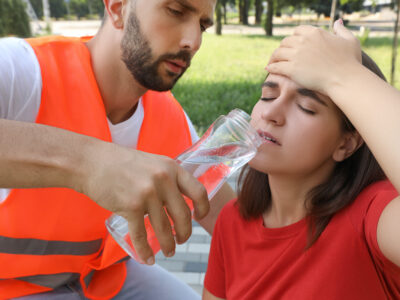
A Crucial Element in Crisis: Unveiling the Significance of First Aid in Disaster Preparedness
In the face of natural disasters and emergencies, the role of first aid transcends being a mere set of skills—it becomes a lifeline. Disaster preparedness involves much more than stockpiling supplies; it’s about equipping oneself and the community with the ability to respond effectively in times of crisis. In this exploration, we uncover the indispensable role of first aid in disaster preparedness.
Learn first aid is a valuable skill that empowers individuals to respond effectively in emergencies, providing immediate assistance and potentially saving lives in various critical situations.
Immediate Response and Injury Prevention
1. Swift Action Saves Lives:
- In the aftermath of a disaster, immediate response is critical. First aid enables individuals to assess and address injuries promptly, potentially saving lives before professional help arrives.
2. Minimizing Injury Severity:
- Properly administered first aid can prevent minor injuries from escalating into major health issues. Immediate care helps control bleeding, stabilize fractures, and address other injuries before they worsen.
Community Resilience and Support
1. Building Resilient Communities:
- First aid training fosters community resilience by empowering individuals to care for themselves and others. In times of disaster, a community equipped with first aid skills can efficiently support each other.
2. Reducing Strain on Emergency Services:
- With a knowledgeable community, the burden on emergency services is alleviated. Individuals can provide immediate assistance, allowing professionals to focus on critical cases.
Essential First Aid Skills for Disasters
1. CPR (Cardiopulmonary Resuscitation):
- Knowing how to perform CPR is a fundamental skill. In disasters where cardiac events may occur, CPR can be a lifesaving intervention until advanced medical care is available.
2. Treating Shock:
- Disasters can be emotionally and physically shocking. First aid includes techniques to manage shock, such as keeping individuals warm, comfortable, and reassured.
3. Wound Care and Infection Prevention:
- Basic wound care is crucial in disaster scenarios where access to medical facilities may be limited. Treating wounds promptly and preventing infections is vital for the well-being of survivors.
4. Evacuation Assistance:
- First aid includes techniques for safely evacuating individuals, especially those with injuries or special needs. Knowing how to move someone without causing further harm is an essential skill.
Preparedness Education and Training
1. Community Workshops and Training Sessions:
- Educational initiatives on first aid create a foundation for disaster preparedness. Community workshops and training sessions empower individuals with practical skills and knowledge.
2. Ongoing Skill Maintenance:
- Disaster preparedness involves continuous learning. Individuals must participate in regular first aid training sessions to refresh their skills and stay informed about updated techniques.
Importance of Basic Supplies
1. First Aid Kits:
- Well-equipped first aid kits are indispensable in disaster preparedness. These kits should contain essential supplies like bandages, antiseptic wipes, pain relievers, and other items necessary for immediate care.
2. Portable Defibrillators:
- In certain disasters, such as earthquakes or severe storms, the availability of portable defibrillators can be a game-changer. These devices can be used by trained individuals to respond to cardiac emergencies.
Conclusion
In the unpredictable landscape of disasters, first aid emerges as a beacon of hope and practical assistance. Beyond its immediate life-saving potential, first aid fosters community resilience, reduces the strain on emergency services, and empowers individuals to respond effectively. As we navigate the uncertainties of the future, the role of first aid in disaster preparedness stands as a testament to the strength of communities that are prepared, informed, and ready to face the unexpected.











